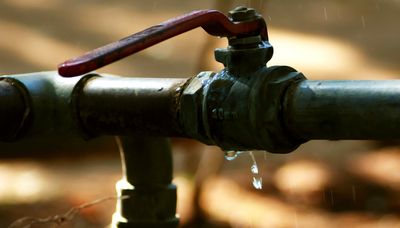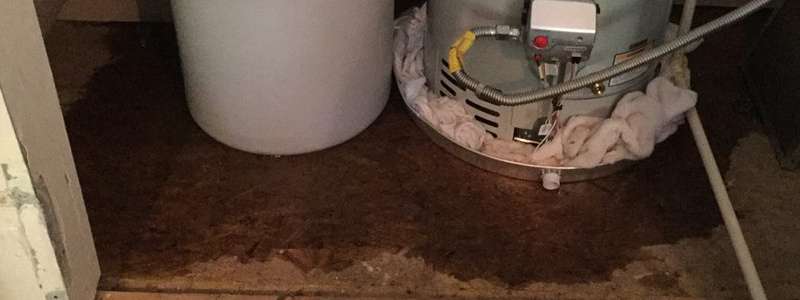5 Routine Water Leak Causes
5 Routine Water Leak Causes
Blog Article
Each person may have their unique assumption on the subject of Reasons for Water Heater Leaks.

"Be cautious of little expenditures. A tiny leak will sink a fantastic ship." - Benjamin Franklin.
He couldn't have been more ideal since water leaks in our homes lead to a waste of sources, raising our water costs. This rise could seem minimal at initially, it can lead to considerable costs that can damage your financial institution. Aside from a boost in expenses, water leakages also cause unwanted organic development, architectural damages, as well as also electric risks.
If you have a water leakage isn't always simple due to being not able to see most of the pipework in your home, figuring out. However, If you have had a boost in your water bills lately, saw water spots on ceilings and also walls, scented poor odor, and so on. You may wish to take into consideration requesting plumbing services to get it took a look at.
There are a number of causes of water leakages, as well as we have put together the usual reasons listed below. Examine to see if you have had related concerns in your house just recently.
Obstructed drains pipes
Food fragments, dust, and oil can cause clogged up drains as well as block the passage of water in and out of your sink. Increased pressure within the gutters can create an overflow as well as finish up fracturing or breaking pipelines if undealt with. To avoid clogged drains pipes in your home, we encourage you to avoid pouring fragments away as well as regular cleansing of sinks.
High water pressure
You observed your residence water pressure is more than common yet after that, why should you care? It's out of your control.
It would be best if you cared since your typical water pressure must be 60 Psi (per square inch) and also although your home's plumbing system is designed to hold up against 80 Psi. A boost in water stress can put a strain on your home pipes and also result in splits, or worse, ruptured pipes. Obtain in touch with a specialist concerning controling it if you ever discover that your home water stress is higher than typical.
Rust
As your pipework grows older, it obtains weaker and also a lot more prone to corrosion after the regular flow of water through them, which can eat away at pipelines and also trigger splits. A visible sign of corrosion in your house plumbing system is staining and also although this might be difficult to discover as a result of the majority of pipes hidden away. Once they are old to make sure a sound plumbing system, we encourage doing a frequent appointment every few years and change pipelines
Damaged pipe joints
Pipeline joints are the parts of our plumbing system where the pipelines connect. It is important to keep in mind that even though pipes are developed to hold up against pressure and also last for a while, they weren't made to last permanently; for that reason, they would certainly deteriorate over time. An usual sign of damaged pipeline joints is extreme noise from taps.
Damaged seals
One more source of water leaks in homes is damaged seals of home devices that make use of water, e.g., a dishwashing machine. When such appliances are installed, seals are set up around water connectors for very easy flow of water via the equipment. A damaged seal can create leak of water when in usage.
With little or no knowledge of plumbing, understanding your home's plumbing system adequate to deal with some of these concerns (without repercussion) can be an inconvenience. Contact plumbing professionals in Pittsburgh, Providence, Rochester, as well as environ today, and also they'll make those issues vanish.
He could not have been more appropriate because water leakages in our houses result in a waste of resources, increasing our water expenses. If you have had a boost in your water costs recently, saw water stains on ceilings and wall surfaces, smelt lousy odor, and so on. A boost in water pressure can place a strain on your residence pipes and lead to cracks, or worse, burst pipelines. An additional reason of water leakages in residences is broken seals of house appliances that utilize water, e.g., a dish washer. When such home appliances are mounted, seals are set up around water connectors for very easy passage of water via the maker.
5 TIPS IN DETECTING A WATER LEAK IN YOUR HOUSE
Water leaks can be hard to find in your home, yet they can be so common. We rely on water every day in our home, which is why a leak can cause big problems. By detecting them early, you can save money and further damage, getting the problem fixed as soon as possible. Here are 5 tips to help you detect a water leak in your home, so you can contact a plumber straight away and get the issue sorted.
Check your water meter
Many people underestimate the value of the water meter in their home. It can be one of the best ways to tell if you have a leak early on, so you can get on top of it before issues start arising. Start by turning off all the water in your home: taps, washing machine, dishwasher, etc. Now take a look at the meter – if it’s still changing with everything turned off, it’s likely you have a fast-flowing leak that you need to get on top of straight away. If nothing changes, then leave your meter for an hour or two and come back to it. Did it change in this time? It’s likely you have a slower leak, which isn’t as urgent but still handy to get fixed so it doesn’t become a bigger problem.
Keep an eye on your bill
Another good way to detect a leak in your home is by keeping an eye on your water bill. It helps if you have a past bill from the same period of time. You can compare like for like and determine whether your water usage has increased significantly. If it has, there may be a leak in your system that you haven’t picked up before. A professional plumber can check through all of your pipes and determine where it is coming from.
Look for damage
If you have a leak inside your home, you will notice damage over time. Take a look at your showers and bathtubs and note whether any of the tiles surrounding the area seem to be discoloured or damaged in any way. There may be water stains, mould or peeling material that has resulted from a build up of moisture over time. Make sure you take a look under sinks at the back of cupboards that don’t get accessed regularly. This is where damage can go unnoticed and build up over periods of time.

Do you really like reading about How to Find and Prevent Water Leaks in Your Home? Leave a remark below. We would be delighted to hear your responses about this write-up. We are looking forward that you come back again soon. Appreciated our write-up? Please share it. Let other people check it out. I treasure reading our article about Where to Find Water Leaks.
Hot water issues? Report this page